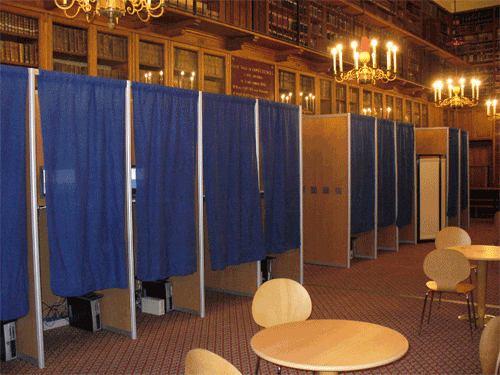A federal judge has ruled that an Indiana law banning the taking of selfies while voting in a polling booth is unconstitutional. With the ruling, residents of Indiana will once again be able to photograph themselves while they vote in an election.
United States District Judge Sarah Evans Barker ruled that the Indiana law violated that 1st Amendment’s freedom of speech. As a result, authorities in Indiana will not be allowed to enforce the law, which carried up to a 30 month prison sentence along with a $10,000 fine.
The law came into effect on July 1 of this year. The idea was that banning selfies while voting would prevent voter coercion and protect both the secrecy of voting and the integrity of the electoral process.
The American Civil Liberties Union sued the state of Indiana, saying that people should be allowed to share their acts of voting as well as who they are voting for if they choose to do so.
Judge Barker said, “The State has entirely failed to identify any such problem in Indiana relating to or evidencing vote buying, voter fraud, voter coercion, involuntary ballot disclosures, or an existing threat to the integrity of the electoral process.”
With the ruling, similar laws across the nation are also being called into question.
While making her ruling, Judge Barker quoted a passage from the dissenting opinion of Supreme Court Justice Louis Brandeis in a 1928 case, where the Supreme Court approved warrantless wiretaps. This decision was later overturned in 1967.
The dissenting opinion read, “Experience should teach us to be most on our guard to protect liberty when the government’s purposes are beneficent. Men born to freedom are naturally alert to repel invasion of their liberty by evil-minded rulers. The greatest dangers to liberty lurk in insidious encroachment by men of zeal, well-meaning but without understanding.”
Judge Baker went on to say that even though 87 years had passed since Brandeis offered that dissenting opinion, it still carried value in today’s society. What it all comes down to is that Americans are allowed to share their part in the electoral process as they choose.
Stay Connected